Publishers Clearing House ordered to refund $18 million, clean up its act
Dark patterns, hidden charges, tricky wording ensnare consumers, feds allege
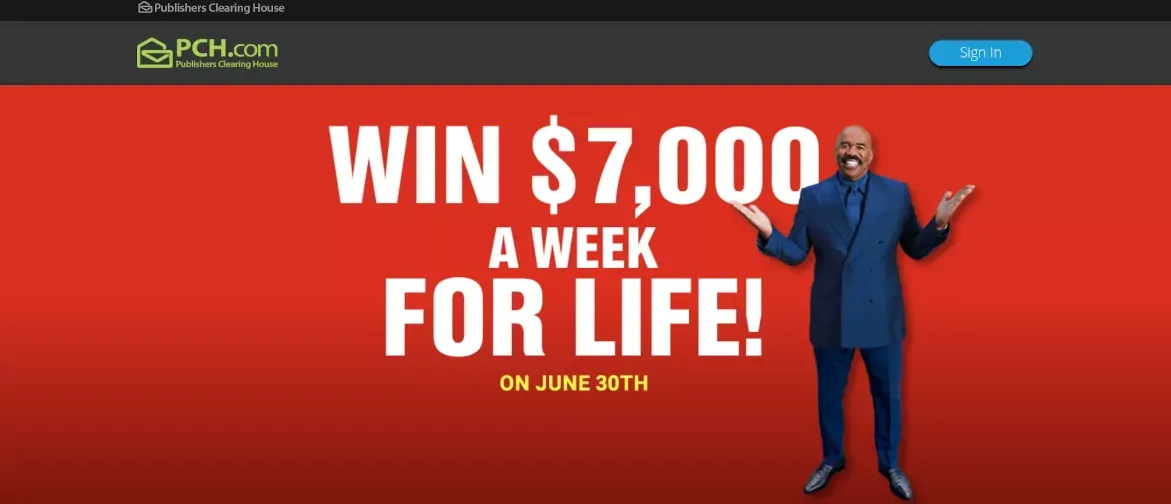
Everybody would like to win big bucks with little risk and no effort but you should be very skeptical of anyone who promises to make that happen – and that includes Publishers Clearing House.
The ubiquitous sweepstakes promoter has agreed to a proposed court order that will require it to pay $18.5 million to consumers who spent money and wasted their time, and make substantial changes to how it conducts business online.
In a complaint against PCH, the Federal Trade Commission charges that the company uses “dark patterns” to mislead consumers about how to enter its well-known sweepstakes drawings and made them believe that a purchase is necessary to win or would increase their chances of winning, and that their sweepstakes entries are incomplete even when they are not.
The FTC also charges that the company has added surprise shipping and handling fees to the costs of products, misrepresented that ordering is “risk free,” used deceptive emails as part of its marketing campaign, and misrepresented its policies on selling users’ personal data to third parties prior to January 2019. Many consumers affected by these practices are older and lower-income.
“Today’s action requiring PCH to overhaul its user interface, compensate consumers for lost time, and stop surprise fees should send a clear message that manipulative design techniques are a no-go under our laws,” said the FTC's Samuel Levine in a news release. “This is our second dark pattern lawsuit over the last week. Firms that continue to deploy deceptive design techniques are on notice.”
Shining light on dark patterns
The FTC charges that PCH used dark patterns—manipulative phrasing and website design—to convince consumers that they needed to buy a product of some kind to enter the company’s sweepstakes or increase their chances of winning.
According to the complaint, the deception starts from the company’s homepage, where consumers complete an “Official Entry Form” with a large button with phrasing like “WIN IT!” or “Win for Life!” This form, however, does not enter them in the sweepstakes.
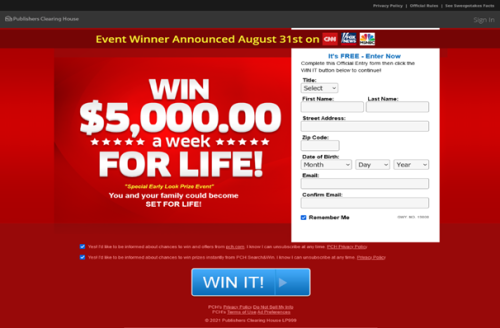
Instead, the complaint charges, consumers enter an arduous journey through pages of advertisements and sales pitches before they can actually enter the sweepstakes. The advertisements allegedly use tricky wording that conflates ordering and entering to lead consumers to believe they must make a purchase to enter, or that purchasing will increase their chances of winning a sweepstakes, neither of which is true.
Once consumers have navigated through the pages to reach the actual entry form and complete their entry, though, the complaint charges that PCH begins sending emails making them believe that they must complete a “final” or “last” step to complete their entry.
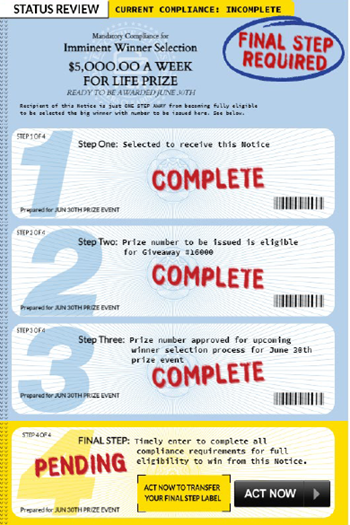
The FTC alleges that while the emails often make it seem as though consumers must immediately click to ensure they can enter the sweepstakes, when consumers click on the links in these emails to finalize their entry, they instead re-enter the cycle of pages and pages of dark patterns and deceptive sales pitches. The pages they land on have all-caps messages like “$1,000 per week for life AT STAKE!” and “JUST ONE ORDER IS ALL IT TAKES.”
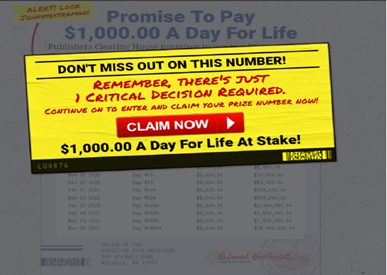
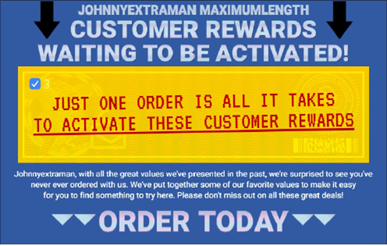
The FTC’s complaint charges that where PCH included disclaimers or clarifying information on shopping pages, it was in small, light font, below the “call to action” buttons, and overlooked by consumers.
And besides that ...
Beyond the company’s deceptive cycle of emails and webpages, though, the FTC’s complaint charges that PCH employed other unlawful practices, including:
- Failing to disclose the true price of goods: The complaint charges that PCH hid from consumers who made purchases on their websites shipping and handling costs – which averaged over 40% of the product costs – until well after the purchase was complete and it was too late for consumers to stop a shipment.
- Deceiving consumers about “no risk” purchases: The complaint charges that PCH promised consumers that purchases from their site were “risk free,” but failed to inform consumers that they would be responsible for paying the return shipping on unwanted products.
- Using misleading email subjects: The complaint charges that PCH used email subject lines that were deceptive, with subject lines like “High Priority Doc. W-34 Issued” or “W-19 Notice – Step 3 of 3 INCOMPLETE,” leading consumers to believe the email was related to a tax form or official requirement. But the documents referred to in these subject lines were complete fictions and nothing in the emails themselves even referred to these forms. Numerous consumers clicked on these emails and purchased products or lost valuable time clicking through website pages.
- Having misleading statements in its Privacy Policy: The complaint charges that PCH had a statement in the middle of its privacy policy prior to January 2019, which stated that it did “not rent, license, or sell” consumer data to third parties. The complaint charges that, in fact, PCH has shared consumer data with other marketers, advertisers, and publishing companies to target consumers with third-party ads.
PCH agreed to settle the FTC’s charges that it violated the FTC Act and CAN-SPAM Act, and a proposed court order would require the company to turn over $18.5 million to the FTC to be used to refund consumers and make a number of key changes to its email and internet operations, basically eliminating the practices that FTC challenged.
